Duration: 25 minutes
Season 1
Episode 11
Unlocking Gen Z’s full potential in the workplace
What are the biggest truths and misconceptions about Gen Z in the workforce? What are their strengths and how can managers adapt their leadership style to unlock the potential of the next generation?
In this episode we talk to Forbes contributor and generational expert Mark Perna, to explore how businesses can make the most out of a multi-generational workforce, why Gen Z is the ‘benchmark’ generation, and what we can expect from the talent of tomorrow.

Key takeaways:
Gen Z is viewed as the benchmark generation. It sets a universal standard for engaging across all ages by prioritizing human connection, lifestyle over career, and the expectation of immediate respect. Understanding and adapting to their values and behaviors paves the way for improved talent management, engagement, and social integration.
Prioritizing lifestyle over career is essential for attracting and retaining top Gen Z talent. It’s crucial to understand that aligning work and lifestyle according to Gen Z aspirations and preferences matters. Integrating this perspective into organizational systems, processes, and during onboarding, reduces turnover and increases employee engagement.
Gen Z values contributions that align with a greater good beyond mere profit. For instance, community impact and purposeful work. Organization’s mission and vision for Gen Z can’t be just words up on the wall about how they achieve big things. Younger generations seek to be part of missions that are meaningful. So, it’s important for businesses to be able to achieve their mission and vision, plus offer strong L&D opportunities for continuous learning.
The dynamic of respect has shifted. Young people today expect to be respected first before they give respect in turn. This change requires parents, educators, and employers to adjust their approach. And recognize that giving respect upfront is essential for building trust and connection with younger generations.
People really want flexibility at work (i.e., choosing their working hours or working from home). Companies that offer this kind of flexibility will keep their employees happy, plus attract new ones. But trusting employees to balance their work and life is key to drive successful business results.
Social media and AI are unstoppable forces, particularly in education. Recognizing and embracing such technologies is essential for adapting to current and future trends. Plus, employers will want employees who are AI-capable in the future. And Gen Z will be able to do this in the most positive way.
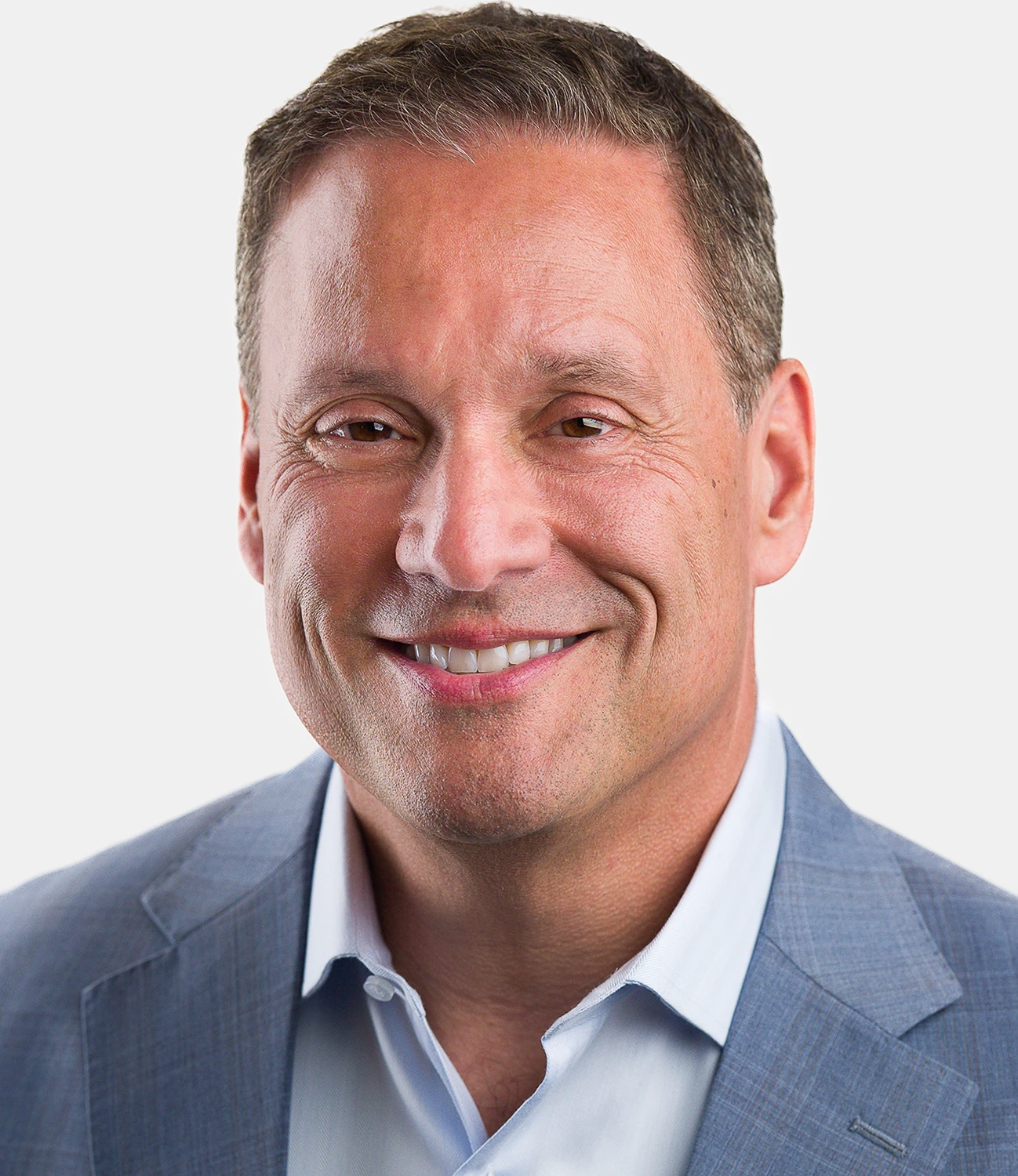
Mark C. Perna
About our guest:
Mark is the founder and CEO of TFS Results, a strategic consulting firm leading the national paradigm shift in workforce development. As an acclaimed generational expert and weekly Forbes.com contributor Mark delivers 70+ keynotes annually across North America where he frequently brings audiences to their feet. He has also spoken at Harvard University by special invitation.
Mark, who serves on the Advisory Council for the Coalition for Career Development in Washington, DC, has empowered countless parents, educators and employers to unleash the true potential of today’s young people through his bestselling book, Answering Why.
Share episode
Want more resources on this topic?

What matters to Gen Z at work
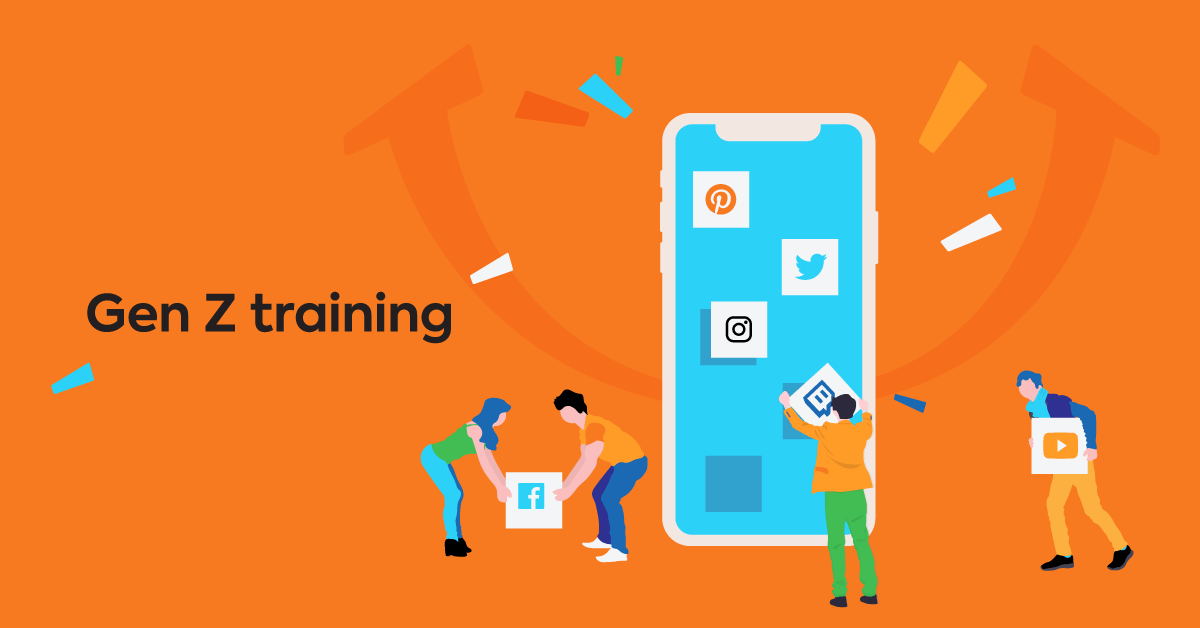
Training Gen Z: 8 best practices

Flexible benefits plans for employees
More episodes we think you’ll love
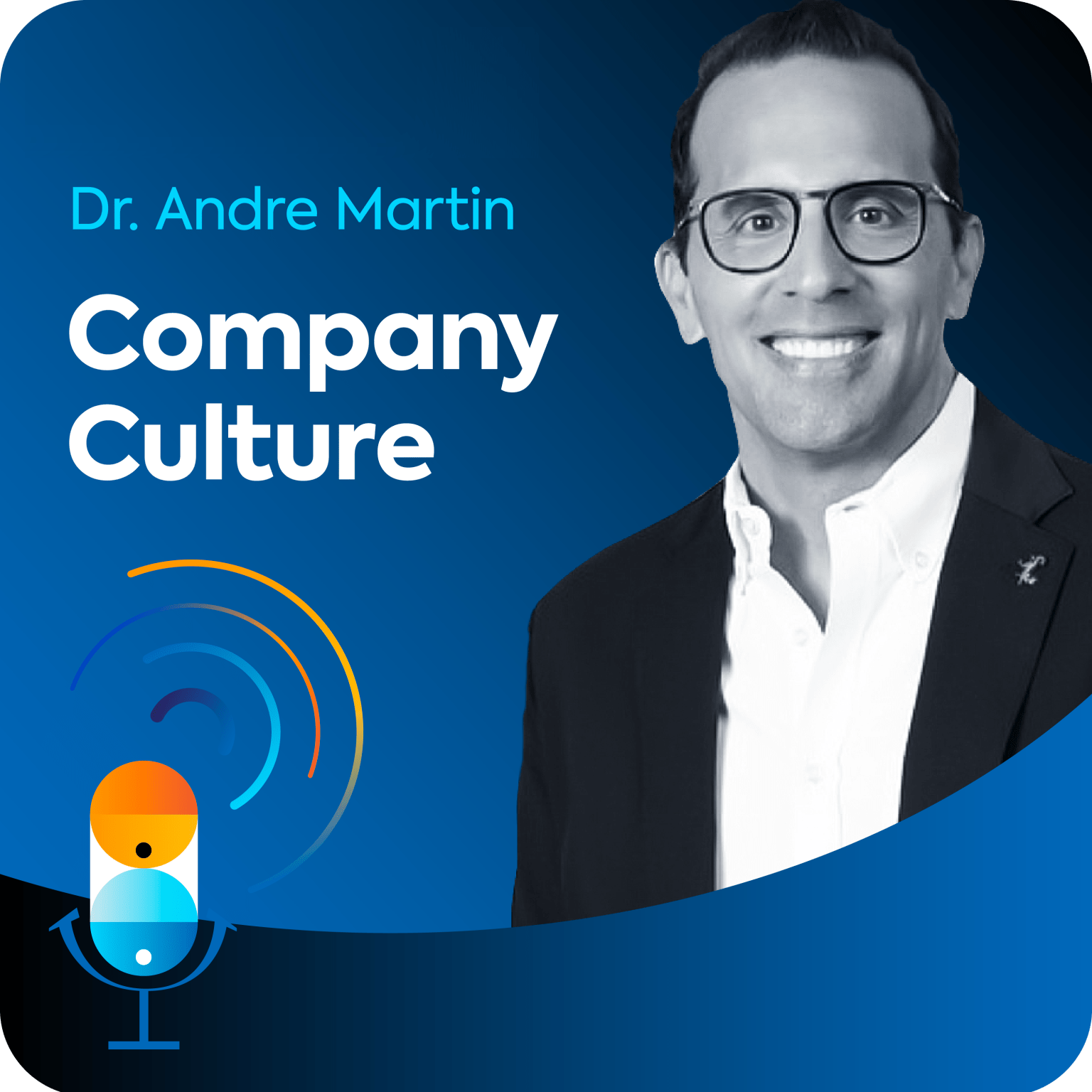
What is company culture? Is it ping-pong tables and perks? Is it the values we talk about internally? Or is it the way the company works “on a random Tuesday in October”? With experience at Disney, Nike, and Google, Talent Exec, Andre Martin joins the discussion.
Join us and find out why authenticity and intention lie at the heart of a consistent culture. Plus: simple tools you can implement when it comes to leading with culture in mind.
Go to episode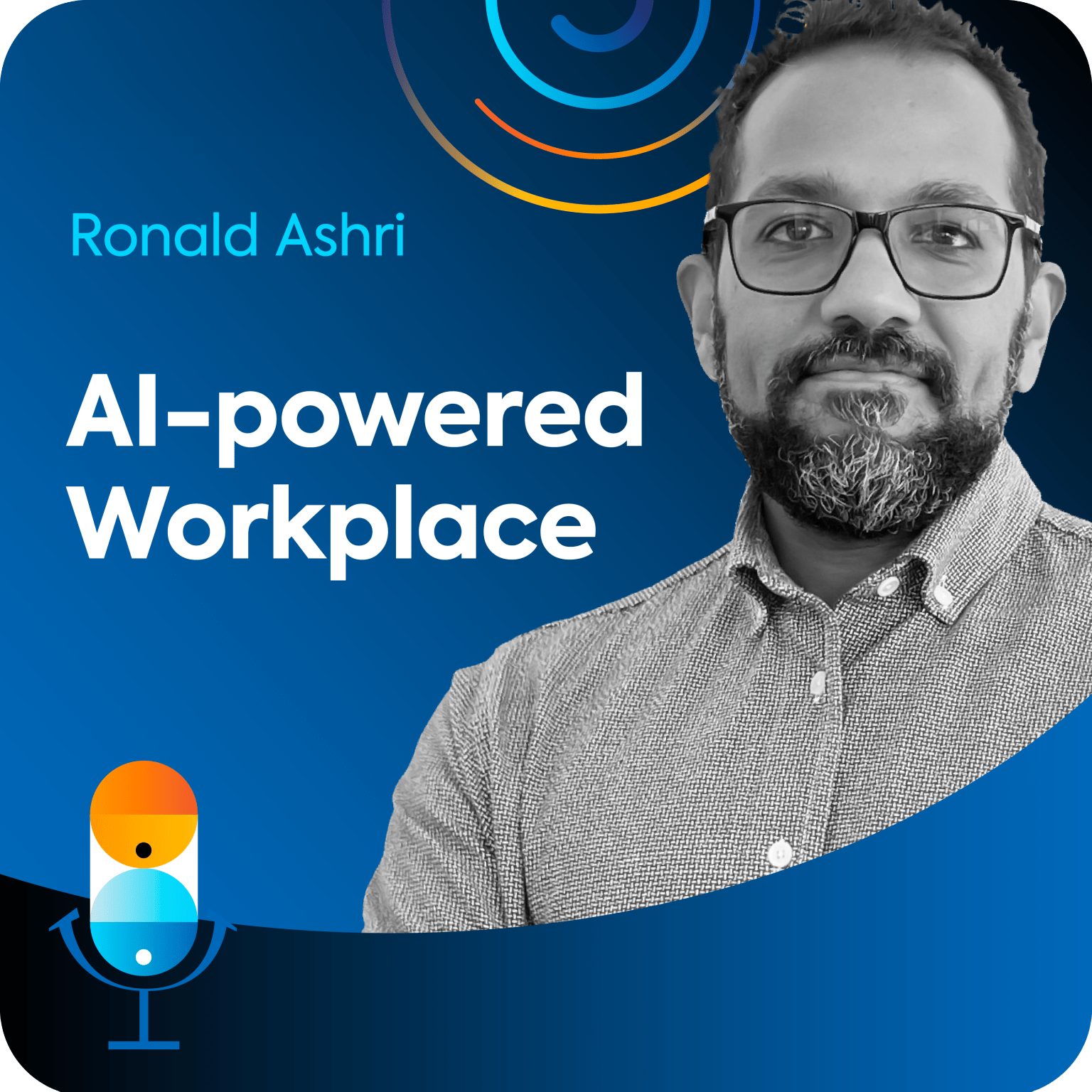
What’s on the horizon beyond ChatGPT? How can you prepare for AI-led digital transformation? We sit down with Ronald Ashri to discuss everything from employee privacy to rethinking how teams are trained and emerging new AI-related roles (prompt engineers?!).
Go to episode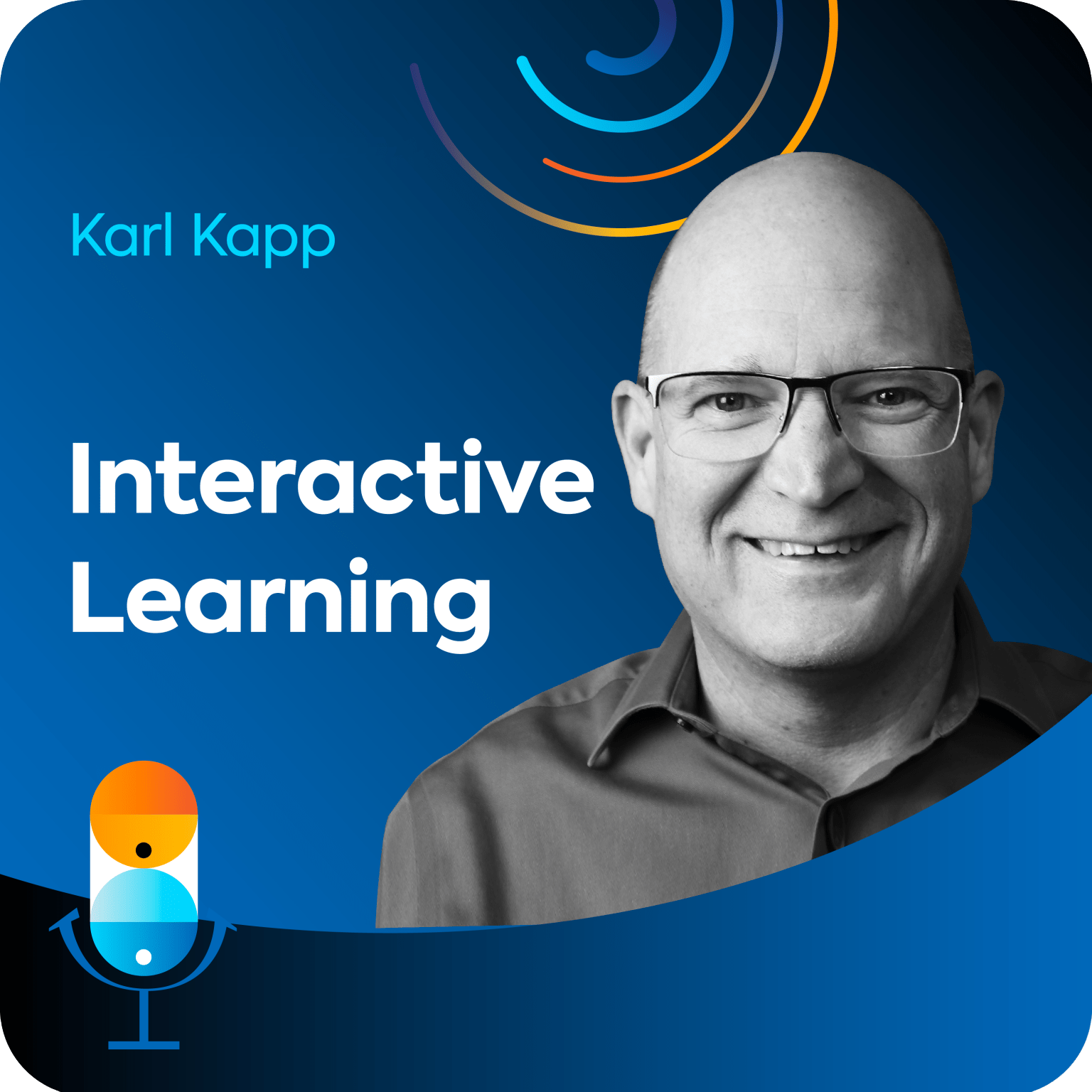
How can we make sure employees are active and engaged during training? It’s time to elevate our learning game. We talk with Karl Kapp, Gamification and Instructional Design expert, professor at Bloomsburg University, and TEDx speaker.
Karl reveals the secrets behind crafting effective, meaningful, and interactive content design for businesses big and small.
Go to episode
Never miss an episode! Get every new drop right in your inbox
By clicking the Subscribe button, you accept and consent to receive the type of content mentioned above. Please review the TalentLMS Privacy Policy for further information.
Full Episode Transcript
Host: Mark, thank you so much for joining us today. How are you? [00:02:03]
Mark Perna: I’m well, Mina. It’s so nice to be with you, and always an honor to talk about a lot of these fun topics. [00:02:06]
Host: So if you don’t mind, I’d love to just quickly jump right in and ask you about the most common stereotypes that you’ve observed about Gen Z in the workforce today. [00:02:13]
Mark Perna: Well, I think you have to start with the fact that everybody thinks they’re lazy and they’re entitled and there’s some negative term associated with them. And when I, you know, speak all across North America, I tell every audience, don’t believe it for a minute. I think Gen Z, eight to 26 years old, is the most extraordinary generation to come down the pike.
And quite frankly, I add millennials above that as well. I think they’re the most intelligent, resourceful, and pitbull-like generations that we have ever seen in this country. When they see a “want-to” in their life, something that truly want, they will move heaven and earth to get to that “want-to.” Our challenge is parents, educators, and employers is getting them to want something that’s really where the battlefield of the future is.
Because if they don’t want something, guess what? They’re not moving forward. You know, they’re not doing something, and I say this, I say this to parents, educators, and employers, you know, I did over 90 keynote speeches last year, and a third of those are to economic development chambers of commerce, employers, community leaders, etc. [00:02:26]
The other two-thirds are to education and school board associations and statewide conferences, etc. And I tell them all, I said, if you look at a young person in your sphere of influence, they’re either in your home, they’re in your classroom, or they’re in your place of business, and they’re not doing what you want them to do.
And you look at them, and you think to yourself, those magic words. Wow, they look like they’re wasting their time. I want you to look with different eyes because Generation Z doesn’t waste their time. They’re always doing exactly what they want to do at any given moment they’re doing it. The challenge is the delta between what they’re doing and what you want them to do.
That delta between those two is the fact that you haven’t given them a compelling reason to do what you want them to do. They don’t buy it. They don’t understand why. So, if they don’t understand the purpose behind it, they’re simply not doing it. [00:03:28]
Host: What I really want to ask, though, in regards to this is, have you noticed if there are any particular things that separate this generation from previous ones in terms of their attitude towards work?
What fundamental differences cause these big rifts that we have observed so far that we sort of need to get rid of moving forward? [00:04:25]
Mark Perna: Yeah, Mina, that’s a great question. And it’s an involved answer because young people today, Generation Z again, 8 to 26 years old. I mean, I’m a generational expert.
So, you know, I’ve been conditioned over my time to, you know, understand like, what do boomers think and what does Gen X think and Gen Y millennials. And now there’s Gen Z, and then there’s going to be Gen Alpha. And it’s like, what do they think? What makes them tick? How do they make decisions? And I don’t spend any time talking about older generations anymore outside of Generation Z.
And I’ll tell you why. I call them, you know, the benchmark generation. And I think for the first time in history if you know what 8 to 26-year-olds think, what makes them tick and how they make decisions, what they’re looking for works for every generation above them. And if you recognize and can really wrap your head around how important the human connection is, how important it is for them to feel like they’re seen, heard, and that they matter.
If you can wrap your head around with, you know, their priorities on everything from flexibility to work-life blend versus work-life balance to all of the different kinds of ways that they engage in school, in work, and in their lives and the importance of how they put lifestyle over career. And if you want your country, once you kind of recognize that.
That’s what every generation really wants, either outwardly or secretly, that they’re trying to get to. And so if you can adjust to Gen Z and really get it, it’ll change the way you deal with every generation in the workforce. [00:04:47]
Host: I have a dual follow-up on that. I would like initially to get a better understanding as to why you call them the benchmark generation.
Is it because they are setting forth different priorities like you mentioned, work-life balance? And the second bit of that follow-up question is, why do you think these differences exist in the first place? Why are Gen Z so focused on things like lifestyle over career or the balance overall? [00:06:24]
Mark Perna: Well, I mean, there’s a lot of involved answers as to why they’re like that.
Lifestyle comes first. You know, when I speak to audiences across America, I say, you know, there’s two questions I love to ask. The young people in my sphere of influence, what do you love to do? And what do you do well? And talking about lifestyle, every decision a young person makes today in America is based on how it affects their lifestyle.
What are they able to do? What kind of experiences can they have? And the real a-ha moment here is that when I speak to young people, so I mean, I speak to high school kids, I speak to middle school kids in my journey, I even recognize in talking to them. I tell them that some of them have grand plans. Some of them have modest plans.
Some of them have laid-back plans. When we talk to young people in America today, you know, in our homes, classrooms, and place of business, we tend to talk to them as if they all have grand plans like they all want to do something extraordinary in their life and where there are certainly are some that have extraordinary plans and want to do grand things. [00:06:52]
Really, most of the generation wants something that’s more modest and laid back. And when you recognize and wrap your head around that, that to be relevant to a young person in your sphere of influences means that you understand how lifestyle plays in their decision-making. And that career has actually become a lifestyle decision.
Here are the kinds of things I want to do in my life. Here’s how I want to live. Again, grand, modest, or laid back. And here’s a career that allows me to do that. And then they’ll go and they’ll search out, what kind of education do I need? What kinds of, you know, how will I engage in this? And so I call them the benchmark because they’re kind of like, it’s that low-hanging fruit.
Like, if you understand them. That’s the benchmark you got to shoot for if you understand them, and you can adjust everything for your HR systems to how you attract and retain top talent to how we connect the pipelines from education into employment and then ultimately serving economic development for the viability of our communities. [00:07:46]
All of these things have to come together to build a very powerful profile of Generation Z and then allowing that so to leverage what you do with all the other generations. So that, to me, is a benchmark to attract and retain more of them. You have to recognize how important all of the things are to them.
The power of building a human connection, respect, and trust works differently today than it did when I was growing up. When I was growing up, I respected my elders first. I worked hard to earn their respect, but today, in America, it’s 180 degrees the opposite way. Young people expect you to respect them first.
And then, and only then, will they turn around and respect you. Now, I’m not saying that’s the way life should be. I’m here to tell you that’s just the way life is. And the sooner parents, educators, employers understand that the dynamic has completely shifted and that you must give respect first before you get respect.
And there are a lot of people in older generations in America who believe that just because of their age, their title, and their station in life that they require respect first, and you can require it all day long, but you’re not going to get it. Unless you’re giving respect first. [00:08:42]
Host: You mentioned retention, and I definitely want to talk about that and especially how that sort of correlates into a statistic that you had mentioned that 94 percent of leaders try not to hire new graduates.
So now that we’re talking about Gen Z, there’s an avoidance towards them. Are there efforts being made to keep them in the companies that they might already be in? And especially when it comes to that feeling, they might have of their purpose not being met. As you mentioned before, this is a big priority for them.
And also if you have any tips for organizations that want to keep that top talent. [00:09:49]
Mark Perna: Obviously, there’s lots of things that we have to recognize about Gen Z, and I can’t cover that all in one big response. So I’m going to cover a couple of key ones. First, the pride of their contribution has to add to a greater good.
And that greater good cannot simply be shareholder value and making money. That greater good has to be some kind of community give-back. That, you know, there has to be some greater purpose than themselves because that’s the reason to do all of this. So if you want to retain young people today, you have to recognize that your mission and your vision cannot be just words up on a wall that talk about, you know, how you’re going to do grand things.
You have to, at the tactical level, be able to do those things. What young people also are looking for, and all the statistics point to this, is that they want organizations that have strong learning and development cultures, meaning that there is ongoing training and we talk all the time as parents, educators, and employers in this country that we want young people to be lifelong learners.
Well, quite frankly, they are. They are lifelong learners for relevant, purposeful training and information and development. The kinds of things that are necessary for a young person today, they want that training. In fact, they will leave a job in one organization to go to another organization simply because there’s grander learning and development or even a grander mission and vision that they can connect themselves to because, again, they want to be part of something bigger than themselves. [00:10:29]
Host: That’s amazing. It seems that Gen Zers are asking what employers have been asking from their employees for decades. Follow through, like put your money where your mouth is, and let me see actions. Let me see you really take charge and stick to what you’re advocating. Off of that previous question, I do want to ask, how have you seen the idea of perks and rewards shift when it comes to generations? [00:12:00]
Mark Perna: You know, again, I think anything that connects to their ability to live the lifestyle that they want to live is a perk, right? I think the kinds of things that you make available to them. I’ll give you an example. Flexibility, according to Hi Bob in Los Angeles, California, says that 90 percent of employees in America, by the way, at any generation, want flexibility in their workforce.
This has shifted tremendously in America, and the pandemic supersized the want and desire for flexibility. There are a lot of businesses in America that have created great flexibility, and there are other businesses in America that say, all right, you’re back to work. We want you in the office every day of the week.
And certainly, businesses can do whatever they want. But once people have tasted flexibility, they’re going to seek out flexibility. And if 90 percent of Americans want something, 90 percent of Americans are going to find a way to get it. If you’re not in a conference room knowing this in the next seven days, and you’re sitting down and thinking to yourself, how do we create flexibility?
Because I guarantee you. Every competing industry in your community is asking themselves, how do they create flexibility and the ones who create flexibility are the ones who are going to attract and retain the top talent out there? Because if 90 percent of Americans want something, they’re going to go get it.
So I said, if you’re not kind of brainstorming and thinking to yourself, well, how do we go from five, eight, hour shifts to four, 10 hour shifts? Or how do we create some kind of flex work ability and allow people to kind of back each other up so that when someone has to go to a doctor, or somebody has got to go to a soccer game, there’s some kind of backup, but allowing employees to do that, I mean, you know, you got to think outside the box, there are ways to create flexibility.
It doesn’t have to be the Wild West and flexibility, but it’s, it’s got to be some flexibility and some understanding. [00:12:29]
Host: I love the fact that you brought in flexibility to the conversation because, as you mentioned, it is something that all generations are really looking for. I very quickly want to ask you if you’ve come across any organizations, because you brought the example of if this is an issue that you are facing, sit down, figure it out.
You have to. It’s a need because they will move on. Have you come across any companies that have been able to successfully bring in flexibility within the way that they operate? [00:14:13]
Mark Perna: Best example of this I could give you is my own. I’ve been doing this for 25 years, and I tell every employee that works with me.
Family first. I want you to live your best life. I want you to make this as flexible. Now, I also am in an industry that allows me to be more flexible. So there are, you know, it depends on the industry that you’re in the positions you’re looking at. But this is just an example. But I tell them all, very thoughtfully, that if you need to be at a doctor, be at a doctor.
You need to be at a game. Be at a game. You need to take care of an aging parent. Take care of an aging parent. If you need a week-long weekend, take a long weekend. If you need a week off, take it. If you need two weeks off, take it. I’m not gonna micromanage you. You don’t need to notify me if you need to go.
And we’re largely virtual. We went virtual about six and a half, seven years ago before it became sexy in America to be virtual. Right? We were ahead of the curve, which was nice ’cause we were ready. When the pandemic kind of hit, right? So I said, I’m not going to micromanage. I trust you. I respect you. You know, we got to get the job done and go. [00:14:45]
And quite frankly, you know, in 25 years, I’ve never had to sit anybody down and have the “talk”. I’ve never had to say anybody is taking advantage of everything. Are there days where people are out, and they’re doing something, and I wish they were just sitting there waiting for my call and ready to jump on my project?
Absolutely yes. But I’ll tell you this, my team probably works a heck of a lot more than 40 hours a week. They work nights, weekends, holidays, vacation time, they work it around. You know, I’ve written articles at Forbes. I write weekly for Forbes. And I’ve written articles about quiet quitting.
You know, I was at the at the spearhead of the whole quiet quitting thing. I encourage my team to quiet, quit, go on a vacation. You don’t need to check in, but they still check in. They so buy into the vision of what we’re going to do and how we’re going to get there that they’re all in. So I’ve empowered them.
So, I mean, that’s an example of how do you create that flexibility? How do you trust the people that you’ve hired? How do you give them the responsibility and the authority to make decisions and make mistakes? Quite frankly, I’ve tried to empower that in my entire team, but at the end of the day, we all respect each other.
We all trust each other. Everybody is contributing the best of themselves to do something extraordinary. That’s bigger than all of us. That’s game over. Every organization has the ability to try to pull that together. [00:15:43]
Host: Before we go into more future-facing matters, because you just touched upon those, I do want to ask about today and the present.
With apps like TikTok on demand, and the nature of Netflix constantly being, having communication with friends, the attention span of Gen Z has been called into question. How can leaders adapt their training programs to suit these needs? And are there any benefits to come out of this perhaps shorter focus span? [00:17:04]
Mark Perna: You know, Mina, it’s not just kids who are addicted to their phones.
It’s every generation at this point. It’s almost across the board. And I think what most people don’t recognize, and just from an understanding and an almost an empathetic perspective is that what happens on a cell phone via social media and you list it off a bunch, TikTok, Facebook, Instagram, etc, the same dopamine hit in our brains that makes us addicted to smoking, that makes us addicted to gambling, that makes us addicted to alcohol is the exact same dopamine hit we get when we’re on social media.
And so to just even recognize that it is an addictive function. There are so many of us at any age who wake up. The first thing we do is grab our phone, and we’re looking at it. The last thing we do before we go to bed is we look at our phone. We do the last check and we put it down.
So it’s not just kids. We’re just recognizing that it’s younger. It’s the ability to recognize the phone and social media as it’s just it’s going to be part of the mix. It’s not going away. You know, we can sit here and talk about the pros and the cons of social media and mental health and all of these things. [00:17:04]
But at the end of the day, it’s here to stay. The genie’s out of the bottle. We’re not putting it back in the bottle. And the other thing we’re not putting back in the bottle is AI automated intelligence, generative AI, you know, the ability for young people to use it as the single greatest tutor in the world today.
And the reason I call it the single greatest tutor is if you go to your any ChatGPT that you’re using or AI platform, and into the prompt, just put in a math equation. This is where it really came to be. Most people talk about it as something it’ll write something for you, you know, like, hey, write me this article or write me this paragraph or write me this text message or letter.
I go in and put in a math problem. If you want to know the power of AI in the hands of young people or any of us, just put a four-digit number times a three-digit number, plus a two-digit number divided by a three-digit number, you know, times another number. And it will give you every step it takes to solve that equation.
Plus give you all the steps to solving that equation. It’ll give you all the work in essence, and when that plays out in front of you, you recognize it’s the single greatest tutor that we’ve ever seen. And we’re trying to outlaw it in schools, and that’s just something that’s never gonna happen. I’ve written articles about the genie’s out of the bottle.
You know, we’re never putting it back in, so recognize we need to embrace it. And employers in greater and greater numbers are going to want young people who are AI capable, who are able to understand how it works and leverage it for the good of the organization, which I think is a great thing. So I think, you know, when it comes to phones, when it comes to social media, I think the more you embrace it and recognize it’s just factored into the equation, allowing them to use it, allowing them to leverage it, giving them positive ways to use it within your organization, I think is a plus. [00:18:48]
Host: I really appreciate your overall viewpoint on these matters. And I think you’ve mentioned it at some point or other. Where the big change between the generations has been in how we motivate what kind of environments we create for them. It used to be more of a negative environment, whereas Gen Zers are now responding to a positive.
And in every single answer you’ve given me, you’ve just proven that point, that if we’re positive and we try to lead forth with understanding. It’s full sails ahead. And I do want to take us back to flexibility once more because your perspective on it is so unique. So flexibility has risen in demand and in importance.
And according to you, aside from flexibility, what would you say is the number one priority for the next generation of employees? [00:20:34]
Mark Perna: I think it’s living the life that they want to live. It’s understanding the importance of lifestyle and all of this; all of the things we talked about are completely relevant.
And the more you stack them up, the more you’re going to attract and retain the top talent you need in your business. And you’re going to attract more people at the top of the funnel. And if you’re willing to understand the things that we’ve talked about and many of the other things I speak about around the country.
If you’re ready to understand and really ingrain that within your systems and in your processes and how you onboard, you know, a significant part of your successes and how you onboard people tend to make it more logistical and paperwork-oriented as opposed to training, social and getting people comfortable within the culture-oriented.
But a significant part of turnover is based in the first 45 days of onboarding a new employee and getting them comfortable within your organization, and understanding it where they fit and how they can move forward.
So if you recognize, though, the importance that everything is lifestyle, every decision a young person makes is based on how it affects their lifestyle, and that career is a lifestyle decision. When you come with that understanding, you recognize that you have to relate to them at every level, right? [00:21:32]
A supervisor with a group of 25 people that they’re reporting to, you need to understand what lifestyle goals and aspirations they have, no matter how grand, modest, or laid back they are. You need to understand where this person is because it’ll explain an awful lot about how much you’re going to be able to get from them and how they’re going to connect, and how you can motivate them moving forward.
So if you ask for that one low-hanging fruit is understand that lifestyle long before career. We tend to think career comes first, and then you build a lifestyle around it. And it’s just not that way. It is lifestyle, first and foremost. It’s how they want to live. It’s what they’re doing when they’re not with you, that matters.
And if they get a chance to do everything they want to do and they’re leveraging their career to do it. They’ll give you everything they’ve got if they’re comfortable, if they’re socially acceptable, and they have an ability to, the pride of their contribution adds to that greater good. So they’ll do all of that because they see the two working hand in hand.
It’s a work-life blend. They want to work two to three hours, take a couple hours off. They want to work two to three hours, take a couple hours off. They want a long weekend. They want to be able to travel. They want to be able to live life to the fullest, but be able to work their business life around all of their experiential lifestyle things. [00:22:41]
Host: That’s great. Thank you. Finally, we’re all about keeping it simple. And so, we’d like to ask you to answer this next question in only one sentence. And I know that’s a bit of a challenge, but that’s our tradition here at Keep It Simple.
From everything you’ve seen, what do you think the leaders of tomorrow will take forward from the leaders of today? And what do you think they’ll leave behind? [00:23:56]
Mark Perna: Empathy and human connection is a game changer. [00:24:21]
Host: Amazing. Mark, thank you so much for taking the time, for sharing all your knowledge and your passion, sounds like. It definitely comes through, and hopefully this chat will be able to inspire more employees and managers alike, to really follow in your footsteps. Thank you so much. [00:24:27]
Mark Perna: Mina, thank you very much. It has been an absolute honor chatting through all of this with you. [00:24:49]
Host: Thank you. Thanks for tuning in to the final episode of this season, and a huge thank you to all of our guests that have sat down with us to simplify the complexities of an ever-changing world of work. Stay tuned for more next season.
This episode of Keep It Simple was brought to you by TalentLMS. The training platform built for success and designed with simplicity in mind. For further resources on today’s topic, visit talentlms.com/podcast. Stay tuned for more, next season. [00:24:56]
Train your people. Measure results. Drive growth.
TalentLMS gives you the tools to supercharge every step of your training.

